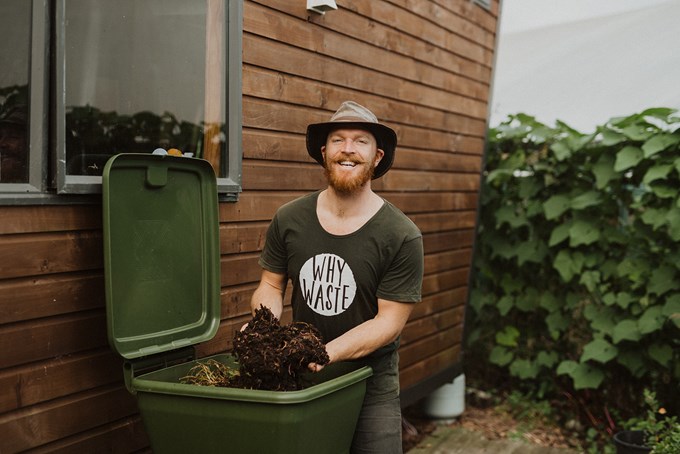They’re the perfect backyard tenants – quiet, respectful and they even make the very best of your food scraps.
Why Waste is using a $24,440 grant from Auckland Council’s Waste Minimisation and Innovation Fund to make it easy for businesses and homes to rent their own worm farms. Applications for the new round of funding open in August.
The company has a dedicated worm specialist who provides the farm, talks the renter through how best to use it to with their food scraps, and visits monthly to make sure the little invertebrates are thriving. There are about 46 of their farms set up around Auckland so far.
Founder of Why Waste Leo Murray says the funding is going towards buying the new worm farms they need to roll out the service, as well as training and support for Josh Storey - the Tamaki Makaurau Membership Manager.
Leo says it's clear that Auckland Council is taking waste seriously. “The council’s funding is essential for community-based alternatives and projects with ecological integrity to be supported from the ground up. Why Waste is grateful to be nourishing the seeds that Auckland Council helped to plant.”
On the ground, Josh Storey says a big part of his job is making it easy for those who don’t want to learn the fine art of worm farming.
“I really enjoy setting them up, seeing the residential farms produce beautiful soil, then having people put that soil in their garden and grow food to go back in the bin. It’s recycling at the highest level.”
During his monthly visits, Josh assesses what’s going on with the worms, and will leave a note in the bins with suggestions about making the food mix better. The note is biodegradable, of course, and becomes part of the mix. This most common problem he finds? Watch out for too much citrus and pineapple.
The Waste Minimisation and Innovation Fund is for projects designed to promote waste minimisation and reduce waste going to landfill.
Applications open on 1 August for grants of up to $50,000.


